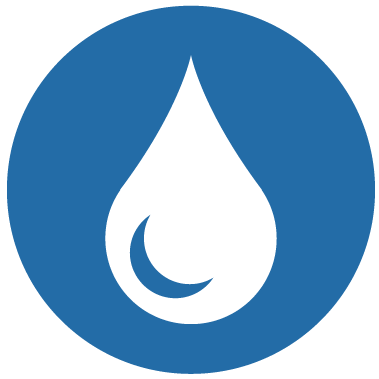Expand Your Knowledge
Water, Sanitation & Hygiene (WaSH)
Stay Safe without Running Water
After an earthquake or other event that disrupts our public water and sewer systems, proper equipment and know-how are critical to obtaining safe water and exercising effective sanitation and hygiene.
Why Have An Emergency Water Supply?
For the Nehalem Bay Region EVCNB recommends that each person stock enough emergency supplies to last a minimum of 30 days. Experts predict that our Region will be isolated for several weeks following the Cascadia earthquake due to collapsed bridges, landslides and destroyed sections of major roadways leading in and out of the Region.
According to FEMA and the Centers for Disease Control and Prevention, each person and pet needs a minimum of one gallon of safe water per day for drinking, cooking and hygiene. When you do the math that means each member of your household needs a minimum of 30 gallons of safe water to last for 30 days – remember to include pets as household members when calculating your household’s emergency water needs.
For many people storing their entire emergency water supply may not be practical. You can supplement your stored water supply if you have the know-how and proper equipment to effectively filter and treat water from local sources such as rain water, streams and springs.
Why Is Sanitation Important?
Our regional sewer system will be non-functional following a major earthquake which means no flush toilets. You will need a process and equipment to safely manage your household’s human and pet waste to avoid the spread of disease when available medical care will be severely limited. While this may not be the most exciting of subjects, it is an essential one if we are to keep our community safe from unnecessary risk following a disaster.
How Can You Practice Effective Hygiene?
Hygiene is always important to protect against the spread of disease, but it becomes even more critical when our access to medical resources is cut-off or severely limited. It is not an overstatement to say that proper hand washing can be life saving in the aftermath of a disaster. The absence of running water definitely makes effective hand washing more challenging, but with some basic equipment and know-how your household will be able to practice proper hygiene even if our public water systems fail.
Why Take The WaSH Class?
EVCNB offers a comprehensive class covering water, sanitation and hygiene in emergency situations. In the class you will obtain the know-how and be able to purchase equipment and supplies to get your household prepared to properly manage your water, sanitation and hygiene needs in the event of a disaster.
Information is important but can be useless without the equipment necessary to implement the knowledge. That’s why EVCNB makes resource materials and equipment available to you in WaSH Class:
Two-bucket filter assembly capable of filtering 30 gallons of water per day, removing bacteria and protozoa
Hands-free hand washing station
2-bucket sanitation system including two toilet seats
Additional essential WaSH materials
Detailed handout containing all information presented in class plus other reference information
Laminated cards describing all of the processes discussed in class in easy to follow steps
We welcome any volunteer who would like to help with putting on a class, doing research, coordinating with community organizations, or has an idea to expand our curriculum. Join us!


